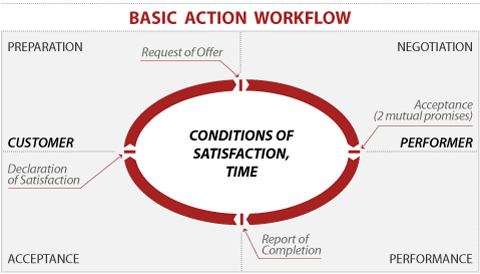One of the balancing acts of entrepreneurship is when to keep control and when to delegate. Our November/December 2016 newsletter explores the challenges of creative and effective delegation.
November/December 2016 Newsletter: Effective Delegation
This blog post summarizes our Nov/Dec 2016 newsletter; you can subscribe to the monthly SKMurphy newsletter.
One of the balancing acts of entrepreneurship is control vs. effective delegation. A commitment to taking personal responsibility and controlling your destiny is essential to getting a startup off the ground. But later on, growth requires effective delegation, which entails a risk of the loss of control. We talk to entrepreneurs who say they want to grow, but as the conversation progresses it’s clear that they only want to grow their business to the point that they remain in complete control. A fear of a loss of control, like a fear of heights, is essential to get started. But it has to be complemented with an ability to trust–business partners, customers, employees, suppliers, and channel partners–or you can only grow the business to a certain size.
![]()
 Delegation Needed For Growth
Delegation Needed For Growth
![]()
A Conversation with Pete Tormey on a Bootstrappers Delegation Checklist
This conversation covers some key points on effective delegation: identify the critical tasks you need to accomplish–these cannot be delegated; understand the skill level of the person you plan to delegate the task or function to; focus on the real business risks you are facing; business structure questions and scaling issues should be deferred until key risks have been addressed.

 The Business Is Everyone’s Business (Part 2)
The Business Is Everyone’s Business (Part 2)
Founders must assess the task relevant maturity of each employee’s experience with a particular task to manage them effectively. Everyone benefits from checklists, checklists free up your focus for the hard problems and the real risks and uncertainties that the organization faces. Skill deficits can be addressed, values conflicts are often difficult to resolve. You must distinguish between experience or skill mismatches–which can be addressed with appropriate management and training, and values conflicts between and individual and team or firm culture.
Check it…

 Are You a Boss Or a Leader?
Are You a Boss Or a Leader?
Here are a couple of rules of thumb you may find helpful in distinguishing between being a boss and being a leader. One rule of thumb for leadership I really like comes from Simon Sinek: “leaders eat last.”
![]()
 Openings In Our Mastermind Groups for 2017
Openings In Our Mastermind Groups for 2017
We have several mastermind groups for entrepreneurs and intrapreneurs that allow you to meet face to face with a small group of people twice a month who are wrestling with the same challenges that you are. Over time you learn about each other’s situations and can often see your mistakes more clearly as a result: it’s happened more than once that someone will offer some advice and then pause and say, “you know, I have this same problem, I should follow my own advice.” Because we meet in a private conference room with a whiteboard and a large screen you also have a chance to review materials before showing them to prospects, customers, or potential partners for comment and feedback. There is also an element of mutual commitment and joint accountability that can help you to move out of your comfort zone (and learn more from what happens when you did by comparing notes afterward with others). Contact me today if you are interested exploring a group.
SKMurphy E-Mail Newsletter
- September/October 2016 Newsletter: Pricing to Value
- July/August 2016 Newsletter: Thought Leadership
- May/June 2016 Newsletter: Early Sales
- Mar/Apr 2016 Newsletter: Lead Generation
- December 2015 Newsletter: Retrospectives, Post Mortems, and After Action Reviews
- November 2015 Newsletter: Referrals / Thanksgiving
- October 2015 Newsletter: Customer Discovery Interviews
- September 2015 Newsletter: When and How to Seek Investment
- August 2015 Newsletter: Strategies for a Winning Sales Presentation
- July 2015 Newsletter: Collaborating to Build Better Companies & Teams
A Note on Workflow Diagram
Action Workflow Diagram is taken from Dr. Fernando Flores‘ “Conversations For Action” model for a basic workflow. More information is available on his model in “Conversations for Action: Collected Essays.“





Pingback: SKMurphy, Inc. Newsletter January 2017: What We Are Up To - SKMurphy, Inc.
Pingback: SKMurphy, Inc. SKMurphy Monthly E-Mail Newsletter Launched